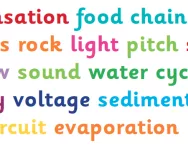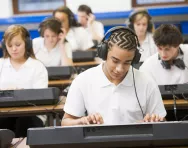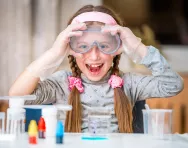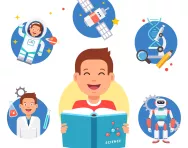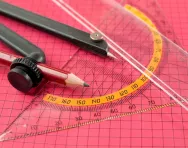TheSchoolRun.com closure date
As we informed you a few months ago, TheSchoolRun has had to make the difficult decision to close due to financial pressures and the company has now ceased trading. We had hoped to keep our content available through a partnership with another educational provider, but this provider has since withdrawn from the agreement.
As a result, we now have to permanently close TheSchoolRun.com. However, to give subscribers time to download any content they’d like to keep, we will keep the website open until 31st July 2025. After this date, the site will be taken down and there will be no further access to any resources. We strongly encourage you to download and save any resources you think you may want to use in the future.
In particular, we suggest downloading:
- Learning packs
- All the worksheets from the 11+ programme, if you are following this with your child
- Complete Learning Journey programmes (the packs below include all 40 worksheets for each programme)
You should already have received 16 primary school eBooks (worth £108.84) to download and keep. If you haven’t received these, please contact us at [email protected] before 31st July 2025, and we will send them to you.
We are very sorry that there is no way to continue offering access to resources and sincerely apologise for the inconvenience caused.
Year 7 science: what your child learns
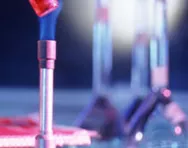
Science is usually taught in ability sets in Year 7. The curriculum for KS3 is the same for all sets, but higher groups will be working towards attaining higher levels, while the lower sets will be given more support.
The syllabus includes chemistry, physics and biology and is designed to build on the topics the children studied at primary school. Children will be working with familiar subjects but the work will be more advanced. They will be working in laboratories, carrying out more experiments and recording and analysing their results. This will help the children to develop particular areas of scientific learning:
- Practical and enquiry skills
- Critical understanding of evidence
- Communication
Science in Year 7 – what your child will learn:
The science curriculum covers the whole of KS3 so this year your child could be studying one or more of the following topics:
Energy, electricity and forces
- Light
- Sound
- Renewable energy
- Emerging technologies
- Electrical circuits
- How to measure current and voltage
- Force and its effect on objects
- Magnetic fields
- Electromagnets
- Gravity
- Friction
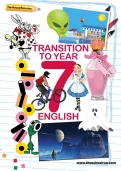
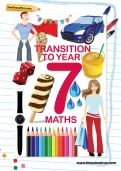
Instantly download Year 6 to 7 transition packs
- English & Maths transition packs
- Practise journalistic writing, figurative language, persuasive text and more
- Revise key maths methods and concepts
Chemical and material behaviour
- Properties and behaviour of matter
- Elements in the Periodic Table
- Atoms and compounds
- Chemical properties and patterns
- pH scale for acids, alkalis and bases
- Solids, liquids and gases
Organisms, behaviour and health
- Tissues, organs and body systems
- Plant and animal cells
- Life processes
- Human reproduction, including fertilisation and foetal development
- Adolescence
- Importance of healthy eating and exercise
- Effects of drugs such as tobacco and alcohol
- Digestion
- Respiration and breathing
- Effects of viruses and bacteria
- Variation in living things
- Human and animal behaviour
- Living things and their habitats
- Food chains
- Dissection
The environment, Earth and the universe
- Igneous, sedimentary and metamorphic rock formation
- Weathering of rocks
- Motions of the sun, moon, stars and planets
- Causes of changes in the environment
Supporting Year 7 science at home
- If your child enjoys experimenting, ask if your school has a science club
- Buy a pH testing kit and encourage your child to check out some of the foods in your kitchen or the soil in your garden
- Take a fishing net and investigate habitats – try pond dipping, or if you go to the beach, rock pooling
- Help your child to experiment with light by making a simple pinhole camera: all you need is a box and some film or light sensitive paper
- See what happens when you add water to cornflour and then squeeze it. Is it a liquid or a solid? Get your child to investigate
- Grow your own crystals together, using sugar or salt, boiling water and a jam jar
- Get your child to try making their own version of a lava lamp using a plastic bottle, coloured water and oil
- You can make a messy volcano by finding out what happens when an acid (vinegar) mixes with a base (baking soda)
- Look at the moon and stars through a telescope together
